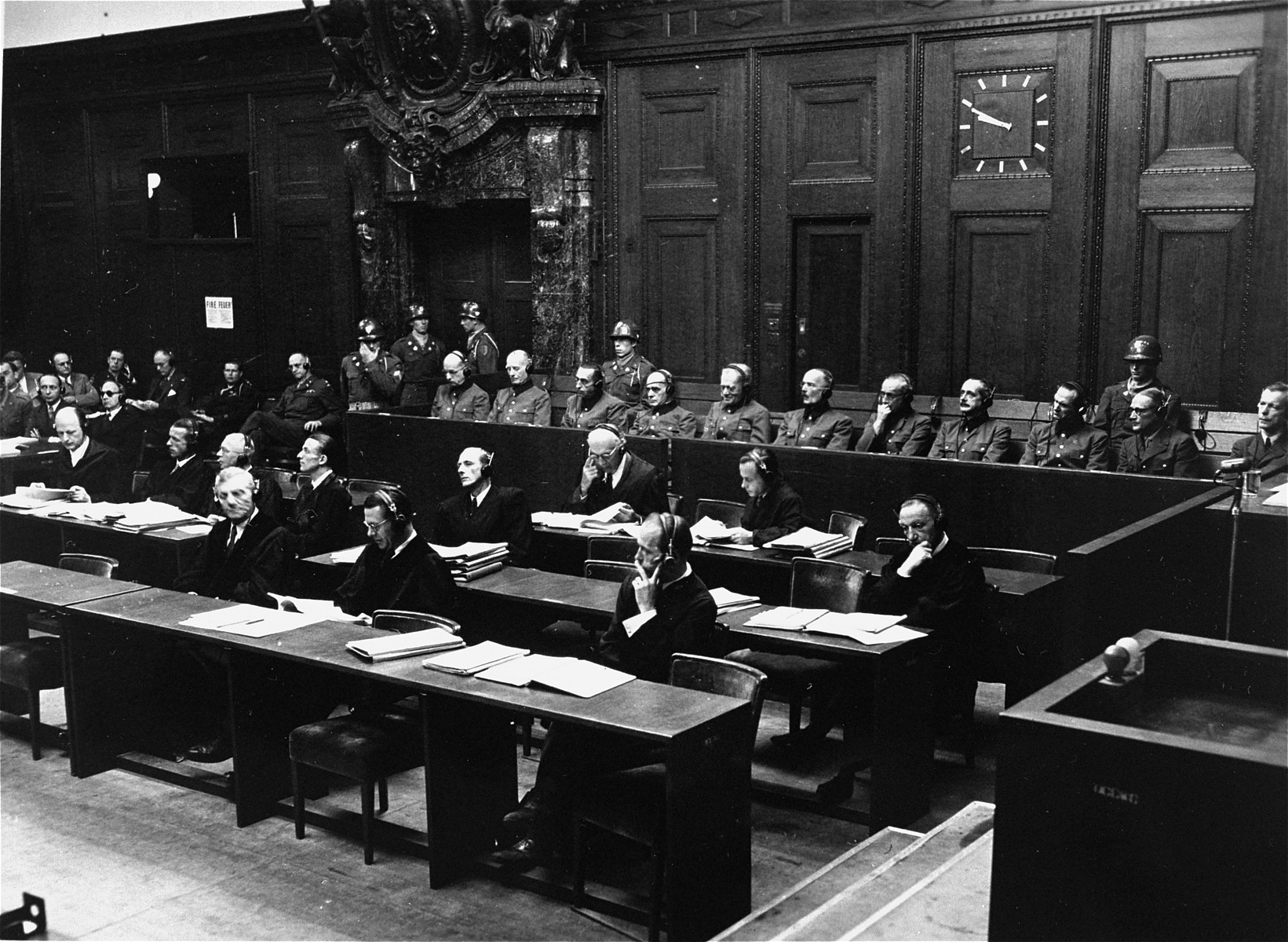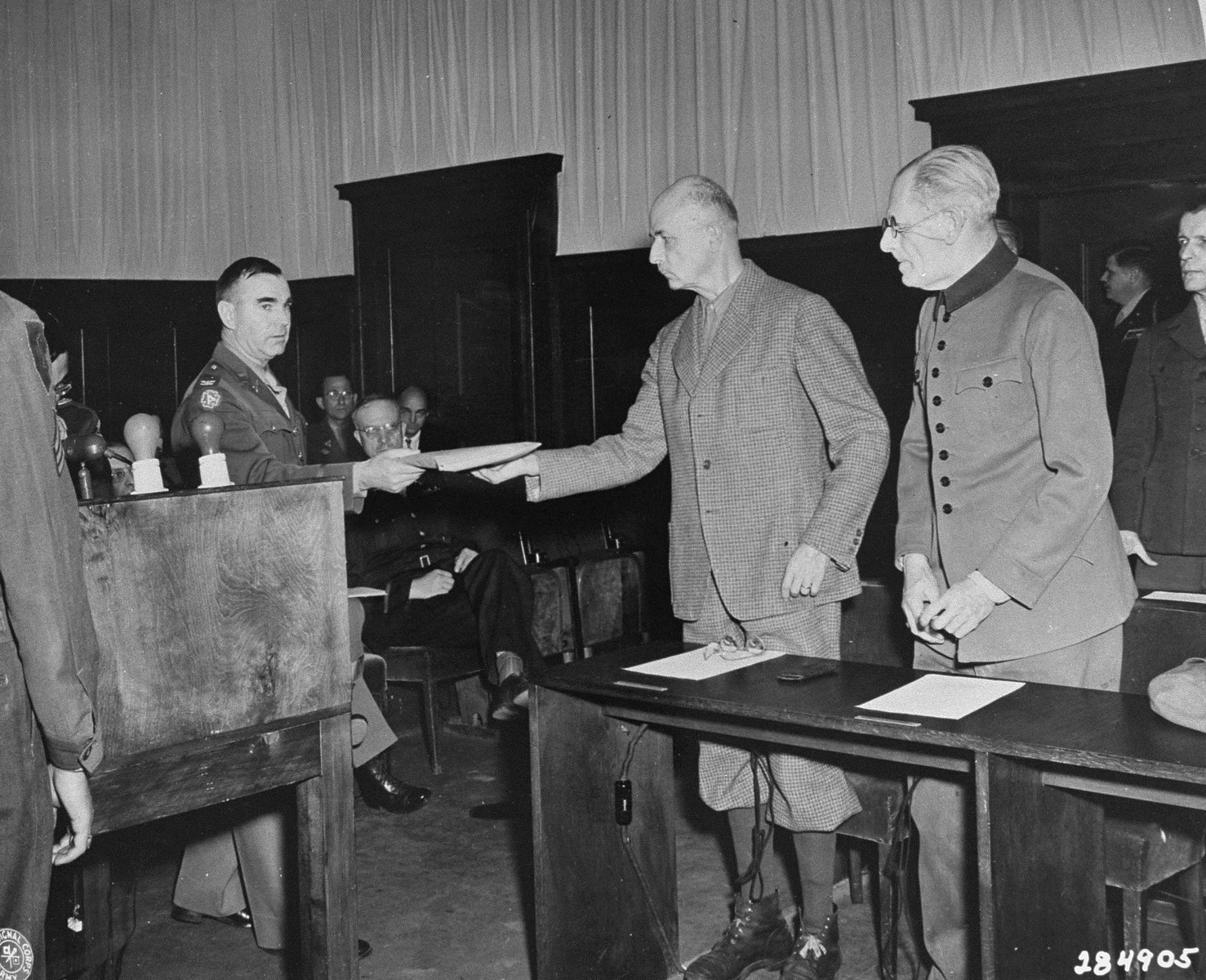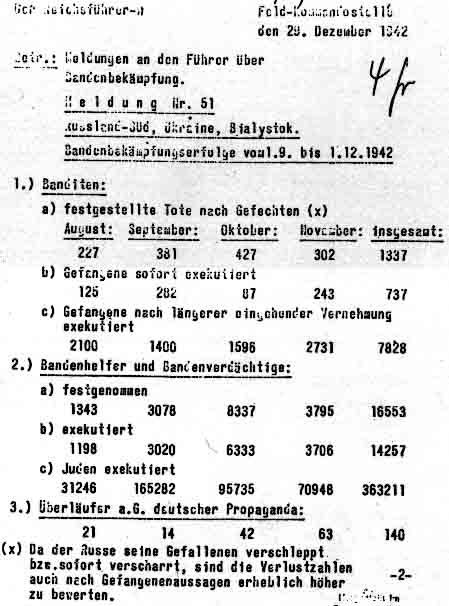|
Hubert Lanz
Karl Hubert Lanz (22 May 1896 – 15 August 1982) was a German general during the Second World War, in which he led units in the Eastern Front and in the Balkans. After the war, he was tried for war crimes and convicted in the Southeast Case, specifically for several atrocities committed by units under his command in the Balkans. Released in 1951, he joined the liberal Free Democratic Party and served as its adviser on military and security issues. Early career Lanz entered the Army on 20 June 1914, shortly before the outbreak of World War I and served in the Western Front, and ended it with the rank of lieutenant (''Oberleutnant''). He was retained in the reduced post-war Reichswehr, being promoted to captain on 1 February 1928. In the period 1932–1934 he commanded a company in an infantry regiment at Gumbinnen, and was subsequently employed in staff duties, being promoted to lieutenant-colonel and Chief of Staff of IX Army Corps on 1 March 1937. After a period of command ... [...More Info...] [...Related Items...] OR: [Wikipedia] [Google] [Baidu] |
Hostages Trial
The Hostages Trial (or, officially, ''The United States of America v. Wilhelm List, et al.'') was held from 8 July 1947 until 19 February 1948 and was the seventh of the twelve trials for war crimes that United States authorities held in their occupation zone in Germany in Nuremberg after the end of World War II. These twelve trials were all held before US military courts, not before the International Military Tribunal, but took place in the same rooms at the Palace of Justice (Nuremberg), Palace of Justice. The twelve US trials are collectively known as the "Subsequent Nuremberg Trials" or, more formally, as the "Trials of War Criminals before the Nuremberg Military Tribunals" (NMT). This case is also known as the "Southeast Case" because all of the defendants had once been German generals leading the troops in Southeastern Europe during the Balkans Campaign (World War II), Balkans Campaign, i.e. in Greece, Albania and Yugoslavia; and they were charged with ordering the hostage-ta ... [...More Info...] [...Related Items...] OR: [Wikipedia] [Google] [Baidu] |
Bandenbekämpfung
In German military history, ''Bandenbekämpfung'' (German; ), also Nazi security warfare (during World War II), refers to the concept and military doctrine of countering resistance or insurrection in the rear area during wartime through extreme brutality. The doctrine provided a rationale for disregarding the established laws of war and for targeting of any number of groups, from armed guerrillas to the civilian population, as "bandits" or "members of gangs". As applied by the German Empire and later by Nazi Germany, it became instrumental in the mass crimes against humanity committed by the two regimes, including the Herero and Namaqua genocide and the Holocaust. Emergence Concept and origins According to historian and television documentary producer, Christopher Hale, there are indications that the term ''Bandenbekämpfung'' may go back as far as the Thirty Years' War. Under the German Empire established by Bismarck in 1871 after the Franco-Prussian War—formed as a ... [...More Info...] [...Related Items...] OR: [Wikipedia] [Google] [Baidu] |
XVIII Corps (Germany)
XVIII. ''Armeekorps'' was formed in Salzburg, Austria, on 1 April 1938, following the Anschluss of Austria into the German Reich. During the life of the XVIII. Armeekorps, they took part in the Polish campaign, Fall Weiss, and the campaign in the West 1940 (Fall Gelb and Fall Rot), and performed occupation duties in France. On 30 October 1940, the Corps gave up some elements to newly forming XXXXIX. Gebirgskorps, and on 1 November, they re-designated the Korps name to XVIII. Gebirgskorps. Commanders XVIII Armeekorps *General der Infanterie Eugen Beyer (1 April 1938 – June 1940) *Generalleutnant Hermann Ritter von Speck (June 1940 – 15 June 1940) *General der Gebirgstruppe Franz Böhme (15 June 1940 – 1 November 1940) XVIII Gebirgskorps *General der Gebirgstruppe Franz Böhme (1 November 1940 – October 1942) *General der Gebirgstruppe Karl Eglseer (10 December 1943 – 23 June 1944) *General der Infanterie Friedrich Hochbaum __NOTOC__ Friedrich Hochbaum (7 August 1894 � ... [...More Info...] [...Related Items...] OR: [Wikipedia] [Google] [Baidu] |
General Lanz V Celju
A general officer is an officer of high rank in the armies, and in some nations' air forces, space forces, and marines or naval infantry. In some usages the term "general officer" refers to a rank above colonel."general, adj. and n.". OED Online. March 2021. Oxford University Press. https://www.oed.com/view/Entry/77489?rskey=dCKrg4&result=1 (accessed May 11, 2021) The term ''general'' is used in two ways: as the generic title for all grades of general officer and as a specific rank. It originates in the 16th century, as a shortening of ''captain general'', which rank was taken from Middle French ''capitaine général''. The adjective ''general'' had been affixed to officer designations since the late medieval period to indicate relative superiority or an extended jurisdiction. Today, the title of ''general'' is known in some countries as a four-star rank. However, different countries use different systems of stars or other insignia for senior ranks. It has a NATO rank scal ... [...More Info...] [...Related Items...] OR: [Wikipedia] [Google] [Baidu] |
Gumbinnen
Gusev (russian: Гу́сев; german: Gumbinnen; lt, Gumbinė; pl, Gąbin) is a town and the administrative center of Gusevsky District of Kaliningrad Oblast, Russia, located at the confluence of the Pissa and Krasnaya Rivers, near the border with Poland and Lithuania, east of Chernyakhovsk. Population: History The settlement of Gumbinnen (from lt, Gumbinė: pumpkin) in the Duchy of Prussia, a vassal duchy of the Kingdom of Poland, was first mentioned in a 1580 deed. A Protestant parish was established in Gumbinnen at the behest of the Hohenzollern thanks to Duke Albert of Prussia about 1545 and the first church was erected in 1582. It became part of Brandenburg-Prussia in 1618, remaining a fief of Poland. From the 18th century, it was part of the Kingdom of Prussia. Between 1709 and 1711 the area was devastated by the Great Northern War plague outbreak and had to be redeveloped under the rule of the "Soldier King" Frederick William I of Prussia, who granted Gumbinnen town ... [...More Info...] [...Related Items...] OR: [Wikipedia] [Google] [Baidu] |
Reichswehr
''Reichswehr'' () was the official name of the German armed forces during the Weimar Republic and the first years of the Third Reich. After Germany was defeated in World War I, the Imperial German Army () was dissolved in order to be reshaped into a peacetime army. From it a provisional Reichswehr was formed in March 1919. Under the terms of the Treaty of Versailles, the rebuilt German army was subject to severe limitations in size and armament. The official formation of the Reichswehr took place on 1 January 1921 after the limitations had been met. The German armed forces kept the name 'Reichswehr' until Adolf Hitler's 1935 proclamation of the "restoration of military sovereignty", at which point it became part of the new . Although ostensibly apolitical, the Reichswehr acted as a state within a state, and its leadership was an important political power factor in the Weimar Republic. The Reichswehr sometimes supported the democratic government, as it did in the Ebert-G ... [...More Info...] [...Related Items...] OR: [Wikipedia] [Google] [Baidu] |
Western Front (World War I)
The Western Front was one of the main theatres of war during the First World War. Following the outbreak of war in August 1914, the German Army opened the Western Front by invading Luxembourg and Belgium, then gaining military control of important industrial regions in France. The German advance was halted with the Battle of the Marne. Following the Race to the Sea, both sides dug in along a meandering line of fortified trenches, stretching from the North Sea to the Swiss frontier with France, which changed little except during early 1917 and in 1918. Between 1915 and 1917 there were several offensives along this front. The attacks employed massive artillery bombardments and massed infantry advances. Entrenchments, machine gun emplacements, barbed wire and artillery repeatedly inflicted severe casualties during attacks and counter-attacks and no significant advances were made. Among the most costly of these offensives were the Battle of Verdun, in 1916, with a combined 700,000 ... [...More Info...] [...Related Items...] OR: [Wikipedia] [Google] [Baidu] |
World War I
World War I (28 July 1914 11 November 1918), often abbreviated as WWI, was one of the deadliest global conflicts in history. Belligerents included much of Europe, the Russian Empire, the United States, and the Ottoman Empire, with fighting occurring throughout Europe, the Middle East, Africa, the Pacific, and parts of Asia. An estimated 9 million soldiers were killed in combat, plus another 23 million wounded, while 5 million civilians died as a result of military action, hunger, and disease. Millions more died in genocides within the Ottoman Empire and in the 1918 influenza pandemic, which was exacerbated by the movement of combatants during the war. Prior to 1914, the European great powers were divided between the Triple Entente (comprising France, Russia, and Britain) and the Triple Alliance (containing Germany, Austria-Hungary, and Italy). Tensions in the Balkans came to a head on 28 June 1914, following the assassination of Archduke Franz Ferdin ... [...More Info...] [...Related Items...] OR: [Wikipedia] [Google] [Baidu] |
Free Democratic Party (Germany)
The Free Democratic Party (german: link=no, Freie Demokratische Partei; FDP, ) is a liberal political party in Germany. The FDP was founded in 1948 by members of former liberal political parties which existed in Germany before World War II, namely the German Democratic Party and the German People's Party. For most of the second half of the 20th century, the FDP held the balance of power in the Bundestag. It has been a junior coalition partner to both the CDU/CSU (1949–1956, 1961–1966, 1982–1998 and 2009–2013) and Social Democratic Party of Germany (1969–1982, 2021–presenter). In the 2013 federal election, the FDP failed to win any directly elected seats in the Bundestag and came up short of the 5 percent threshold to qualify for list representation, being left without representation in the Bundestag for the first time in its history. In the 2017 federal election, the FDP regained its representation in the Bundestag, receiving 10.6% of the vote. After the 2021 fe ... [...More Info...] [...Related Items...] OR: [Wikipedia] [Google] [Baidu] |
Southeast Case
The Hostages Trial (or, officially, ''The United States of America v. Wilhelm List, et al.'') was held from 8 July 1947 until 19 February 1948 and was the seventh of the twelve trials for war crimes that United States authorities held in their occupation zone in Germany in Nuremberg after the end of World War II. These twelve trials were all held before US military courts, not before the International Military Tribunal, but took place in the same rooms at the Palace of Justice. The twelve US trials are collectively known as the " Subsequent Nuremberg Trials" or, more formally, as the "Trials of War Criminals before the Nuremberg Military Tribunals" (NMT). This case is also known as the "Southeast Case" because all of the defendants had once been German generals leading the troops in Southeastern Europe during the Balkans Campaign, i.e. in Greece, Albania and Yugoslavia; and they were charged with ordering the hostage-taking of civilians and wanton shootings of these hostages, th ... [...More Info...] [...Related Items...] OR: [Wikipedia] [Google] [Baidu] |
Balkans
The Balkans ( ), also known as the Balkan Peninsula, is a geographical area in southeastern Europe with various geographical and historical definitions. The region takes its name from the Balkan Mountains that stretch throughout the whole of Bulgaria. The Balkan Peninsula is bordered by the Adriatic Sea in the northwest, the Ionian Sea in the southwest, the Aegean Sea in the south, the Turkish Straits in the east, and the Black Sea in the northeast. The northern border of the peninsula is variously defined. The highest point of the Balkans is Mount Musala, , in the Rila mountain range, Bulgaria. The concept of the Balkan Peninsula was created by the German geographer August Zeune in 1808, who mistakenly considered the Balkan Mountains the dominant mountain system of Southeast Europe spanning from the Adriatic Sea to the Black Sea. The term ''Balkan Peninsula'' was a synonym for Rumelia in the 19th century, the European provinces of the Ottoman Empire. It had a ge ... [...More Info...] [...Related Items...] OR: [Wikipedia] [Google] [Baidu] |
Second World War
World War II or the Second World War, often abbreviated as WWII or WW2, was a world war that lasted from 1939 to 1945. It involved the vast majority of the world's countries—including all of the great powers—forming two opposing military alliances: the Allies and the Axis powers. World War II was a total war that directly involved more than 100 million personnel from more than 30 countries. The major participants in the war threw their entire economic, industrial, and scientific capabilities behind the war effort, blurring the distinction between civilian and military resources. Aircraft played a major role in the conflict, enabling the strategic bombing of population centres and deploying the only two nuclear weapons ever used in war. World War II was by far the deadliest conflict in human history; it resulted in 70 to 85 million fatalities, mostly among civilians. Tens of millions died due to genocides (including the Holocaust), starvation, ma ... [...More Info...] [...Related Items...] OR: [Wikipedia] [Google] [Baidu] |





